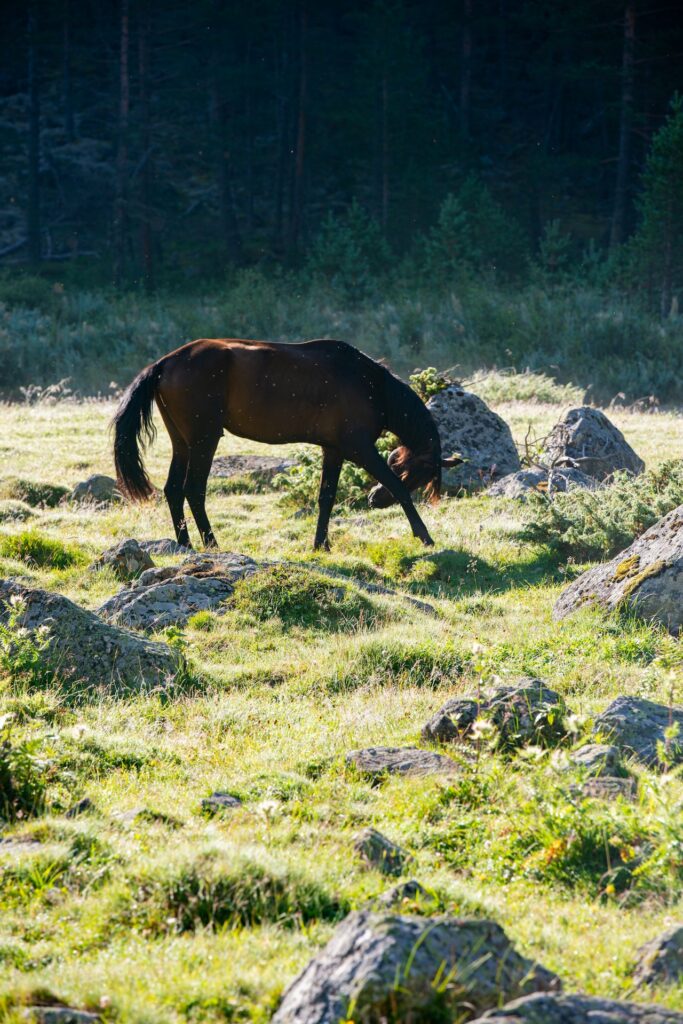What You Need To Know About Ragwort Poisoning In Horses
If you own a horse, then you must know about ragwort poisoning. This toxic plant can cause serious health problems in horses, so it’s crucial to recognise the symptoms and get help if your horse is poisoned. In this article, we’ll discuss what ragwort poisoning is, the symptoms to look out for, and how to treat a horse that has been poisoned by ragwort. So please read on for more information.
What You Need To Know About Ragwort Poisoning In Horses
Ragwort poisoning is a major health concern for horses and one that can be fatal. Knowing the signs to look out for and the ways to prevent and treat ragwort poisoning are all vital steps in keeping your horse healthy and safe.
Introduction to Ragwort Poisoning
Ragwort poisoning occurs when horses consume ragwort (Senecio jacobaea) leaves, flowerheads or roots. This plant is common in pastures throughout Europe and North America. The toxin in ragwort is known as seneciphylline, which can damage the liver, leading to major organ failure if left untreated. A horse consuming a large amount of ragwort at once can result in death within a few days. Therefore, limiting your horse’s exposure to this poisonous plant is important.
Signs of Ragwort Poisoning
One of the most important things you need to know about ragwort poisoning is how to spot signs early on.
Early symptoms may include:
- Depression or lack of appetite
- Weight loss or failure to gain weight
- Weakness and lethargy
- Jaundice or yellowing of the skin due to liver damage
- Abnormal gait due inability for toxins to be cleared from the body
You should take these signs seriously. Otherwise, serious consequences, such as organ failure, can occur if left untreated.
Prevention Strategies
The best way to keep your horse safe from ragwort poisoning is by preventing them from consuming the plant in the first place. There are several strategies you can use:
- Regularly check pastures for any signs of ragwort growth and remove any plants before they go into flower heads or set seed – Pull out plants by hand or use an appropriate weedkiller if necessary
- Maintain grassland management – Keep soil pH levels neutral with lime applications – Use rotational grazing techniques – Plant other pasture species that compete with ragweed for available resources such as space and nutrients
Treatment Strategies
If you suspect your horse has been poisoned by ragweed, you must seek veterinary help immediately. Treatment options include:
- Administering supportive treatments such as IV fluids, vitamins, minerals and/or antibiotics depending on what symptoms have been identified
- Providing liver protectants such as Silybin A+B, which work against cell damage caused by toxins
- Offering high-quality feed which is low in carbohydrates but high in fats & proteins so that energy needs are met without placing further stress on the liver
- Dietary supplements such as Vitamin E & Selenium have been shown to protect against oxidative damage from toxins
Conclusion
Ragweed poisoning can be extremely dangerous for horses if not caught early enough. Remember that if you suspect something isn’t quite right with your equine companion, seek veterinary advice immediately – catching this condition early could mean saving their life! Awareness of what signs look out for and implementing preventive strategies like regular pasture maintenance are key steps towards protecting your horse from this deadly toxin.
If ragweed poisoning concerns your horse, having them insured with Furrr.co.uk is the perfect way to provide peace of mind. Furrr’s pet insurance offers cover for ragweed poisoning and many other conditions, so you can rest assured your beloved equine companion will be well looked after should the worst happen. Get insured today and give yourself one less worry! Visit Furrr.co.uk for more information about how to protect your horse from ragwort poisoning.










